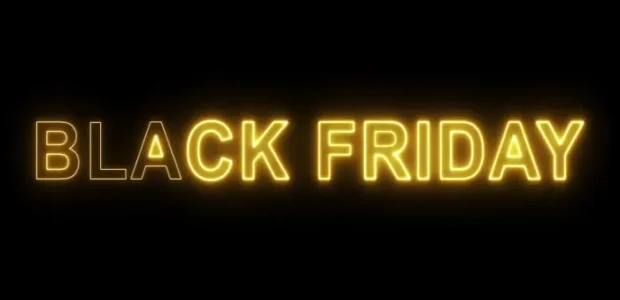
Black Friday. The mere mention of the phrase sparks images of massive crowds, incredible sales, and the adrenaline rush of scoring deals. For many, it’s the unofficial start of the holiday shopping season, offering deep discounts on everything from electronics to fashion. But Black Friday has become more than just a day of shopping—it’s a cultural phenomenon that brings retailers, shoppers, and even entire communities together.
Whether you’re a seasoned Black Friday shopper or a newcomer looking to dive into the madness, this guide will help you understand everything about the event—from its origins to strategies for making the most of this high-stakes shopping holiday.
The Origins of Black Friday
Although it’s hard to imagine a time when Black Friday didn’t exist, the shopping holiday is a relatively modern creation. The term “Black Friday” was first used in the 1960s in Philadelphia to describe the chaos caused by the influx of shoppers and traffic the day after Thanksgiving. Police officers used the term in a somewhat negative light to describe the mayhem they encountered as people flooded stores to take advantage of post-Thanksgiving sales.
However, retailers later turned the term around, adopting it in a more positive sense. The day came to symbolize a profitable moment in the year, when businesses finally “went into the black,” meaning they shifted from operating at a loss to turning a profit. For many retailers, Black Friday marks the beginning of the holiday shopping season, which accounts for a large portion of annual sales.
The Growth of Black Friday
Over the past few decades, Black Friday has transformed from a one-day shopping event to an extended shopping period. In fact, the entire weekend is now a sales extravaganza, and the trend shows no signs of slowing down.
In the early 2000s, online shopping began to play a larger role in Black Friday sales, as consumers became more comfortable shopping from the comfort of their homes. Websites like Amazon, Walmart, and Target introduced significant online discounts, making it easier for people to shop without braving the crowds.
In recent years, retailers have shifted from just offering in-store deals to launching “Black Friday Week” or even “Black Friday Month”, offering discounts for several days leading up to and following the official date. The result is a longer shopping window and increased competition for the best deals.
The Significance of Black Friday
While Black Friday is primarily a shopping event, its significance goes beyond just finding great deals. Here’s why Black Friday matters to shoppers, businesses, and even the economy:
1. Retailers’ Biggest Day
For retailers, Black Friday is often the single most important day of the year. It’s when they can significantly boost their profits, set the tone for the holiday season, and attract shoppers who may return throughout the year. For example, many brick-and-mortar stores rely on the foot traffic generated by Black Friday to clear out old inventory and make room for new products. With discounts that often reach 50% or more, shoppers are eager to snag items they’ve been eyeing for months.
2. A Gateway to Holiday Shopping
Black Friday also serves as a launching pad for the entire holiday shopping season. The sales of Black Friday often set the tone for the weeks leading up to Christmas, with many people completing most of their gift shopping during this period. As a result, Black Friday helps ensure that retailers can meet their year-end sales goals.
3. Economic Impact
The financial impact of Black Friday isn’t limited to the retail sector. The day also has broader economic implications. According to reports, billions of dollars are spent every year, with consumer spending on Black Friday representing a substantial part of the U.S. economy. This surge in sales provides a boost to jobs, distribution centers, and the supply chain, making Black Friday an important event for economic health.
Black Friday Trends in Recent Years
In recent years, Black Friday has seen several shifts that reflect the changing landscape of shopping. From the rise of e-commerce to the impact of the COVID-19 pandemic, here are some key trends that have shaped Black Friday in recent years:
1. The Rise of Online Shopping
While Black Friday was once synonymous with in-store shopping, online shopping has grown significantly in recent years. Retailers like Amazon, Best Buy, and Target now offer huge discounts that match or exceed in-store prices. Cyber Monday, which traditionally falls on the Monday following Black Friday, has also become an extension of Black Friday sales, specifically for online deals.
The convenience of shopping from home, combined with the ease of comparing prices across multiple platforms, has led many consumers to bypass the crowds and shop online. As a result, retailers have increased their online offerings, with many offering “Buy Online, Pick Up In-Store” (BOPIS) services to combine the benefits of in-person and online shopping.
2. Early Deals and Extended Sales
Another significant trend is the shift toward earlier sales and extended promotions. Many retailers now launch Black Friday deals before Thanksgiving, with some even rolling out discounts as early as October. This extended sales window is designed to capture shoppers who may prefer to avoid the chaos of the day itself and is also an attempt to spread out the volume of sales to prevent overwhelming delivery and customer service operations.
Additionally, retailers like Walmart and Target often announce staggered deals that last for several days, rather than just the one-day event.
3. Sustainability and Ethical Shopping
As consumers become more environmentally and socially conscious, there’s been a noticeable shift toward more sustainable shopping. Many brands are now focusing on eco-friendly products, ethical sourcing, and transparent supply chains to appeal to this growing demographic. In response to Black Friday’s culture of consumerism, some businesses have even adopted “Green Friday,” encouraging shoppers to make sustainable and ethical purchasing decisions rather than buying items that may contribute to overconsumption.
Tips for Making the Most of Black Friday
Now that we’ve explored the history and significance of Black Friday, it’s time to dive into some practical tips for navigating the shopping event and making the most of it:
1. Set a Budget
It’s easy to get caught up in the excitement of Black Friday deals, but having a budget in place is essential. Before you start shopping, decide how much you’re willing to spend and stick to it. With so many deals available, it’s tempting to buy things you don’t need just because they’re discounted.
2. Make a List
Know what you’re looking for before you start shopping. Create a list of items you need, whether it’s gifts for family members or something for yourself. Having a list helps you stay focused and avoid impulse buys.
3. Research Prices
Not all Black Friday deals are created equal. Take the time to research prices before the event, especially for big-ticket items like electronics. Compare prices across different retailers to ensure that you’re getting the best deal.
4. Shop Early (or Late)
If you’re shopping in-store, try to get there early for the best selection. However, if you’re shopping online, don’t wait until the last minute. Many online deals sell out quickly, so it’s important to act fast.
5. Stay Safe
Whether you’re shopping online or in-store, make sure your personal and financial information is secure. Use trusted websites, and never share your credit card information on unfamiliar sites. When shopping in-store, be cautious of crowds and always keep an eye on your belongings.
Conclusion: Embrace the Madness, But Shop Smart
Black Friday is a time for incredible deals, but it can also be overwhelming. Whether you’re braving the crowds in-person or clicking through deals online, the key to making the most of this shopping extravaganza is preparation. By setting a budget, researching prices, and focusing on what you really need, you can enjoy the rush of scoring a bargain without the stress of overspending.
So, whether you’re grabbing the latest tech gadget or hunting for that perfect holiday gift, Black Friday has something for every shopper. Happy shopping!
